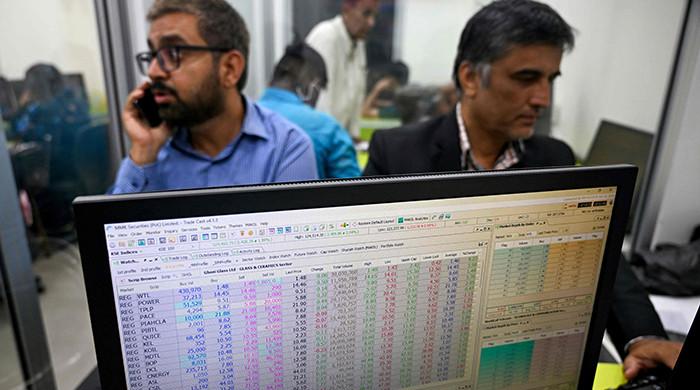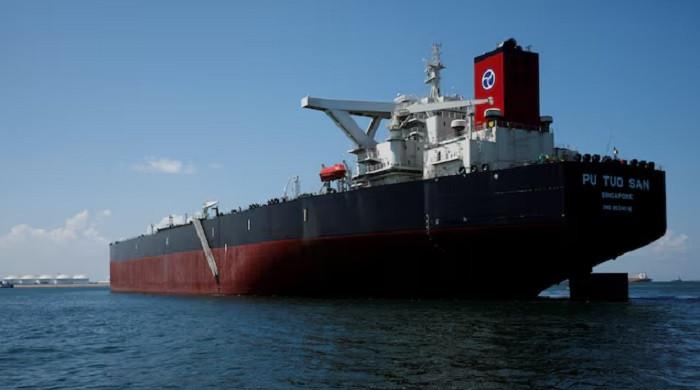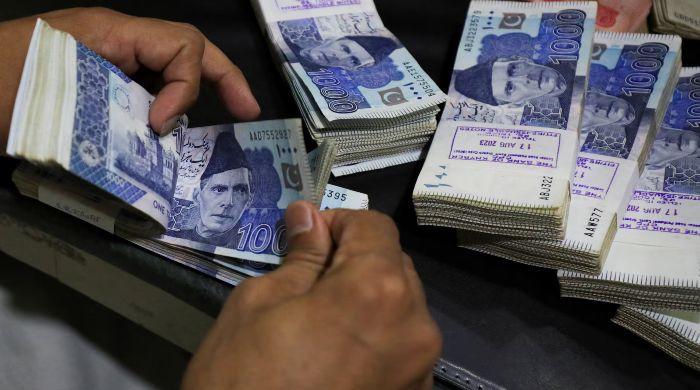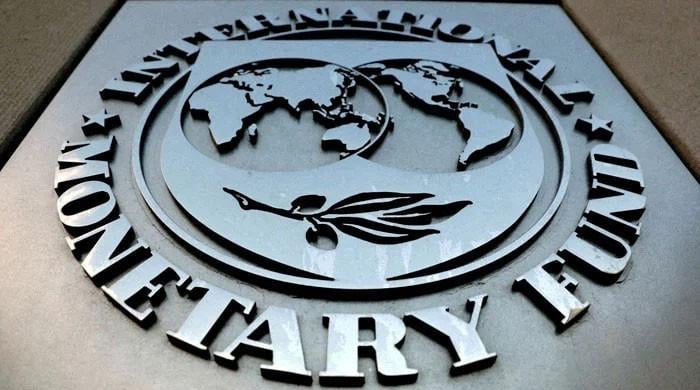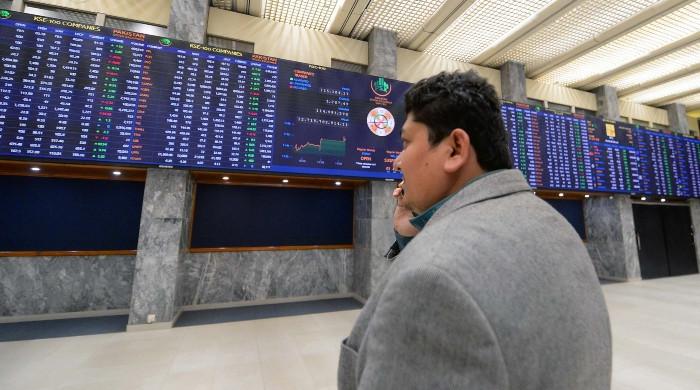Economy will bear brunt of constitutional crisis: analysts
Dissolution of Parliament heavily clouds Pakistan's economic policies, say analysts
April 05, 2022
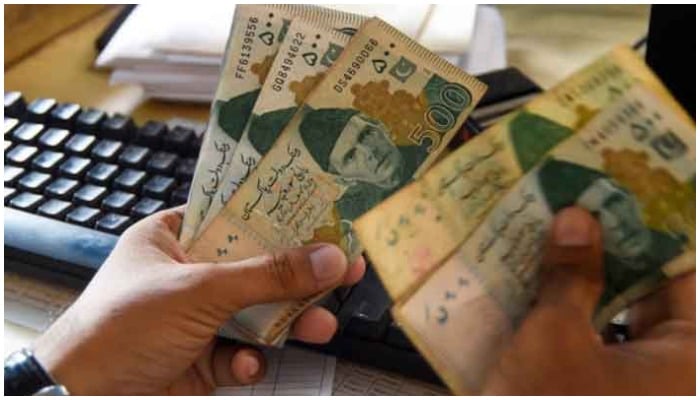
- Dissolution of Parliament will further worsen already critical political turmoil in Pakistan, say analysts.
- Current situation in country creates legal crisis which will impact stocks, bonds, and commodities.
- Analysts say quick resolution and early election will allow new govt to take much needed economic decisions.
KARACHI: The outlook for economic policies and decisions has been heavily clouded by the political turmoil that worsened further after Prime Minister Imran Khan dissolved Parliament and called a fresh election to foil the opposition’s attempt to oust him from office, analysts said on Monday.
The Supreme Court of Pakistan has taken a suo moto notice and started a hearing to decide whether dissolving the National Assembly after the Opposition had tabled the no-confidence motion and calling general election was within the legal bounds of the PTI government. Analysts are hinting at potential hazards for the economy following the emergence of a constitutional crisis in the country.
The ongoing developments have created a legal crisis in the short term which will impact stocks, bonds, and commodities.
“We believe the early resolution of the crisis and Supreme Court ruling on the matter will be critical for the outlook on markets and economy,” said analysts at Topline Securities in a research note.
Read more: IMF to continue providing support to Pakistan after 'new govt is formed'
“Pakistan’s economy is already facing multiple challenges in the form of falling foreign exchange reserves, rising current account deficit and increasing commodity prices. A quick resolution and early election will allow the new democratically elected government to take the much needed tough economic decisions,” the analysts added.
Tahir Abbas, the research head at Arif Habib Limited, believes the market is going to continue to look for clarity on the political front as it will set the tone for future strategy to handle the economy. “This clarity will only emerge once the Supreme Court decision comes through,” he added.
The economy has become subject to the political upheaval, which raised concerns about the future of the International Monetary Fund (IMF) loan programme. This could have an effect on investor confidence in the country’s economic outlook.
IMF looks forward to continuing its support to Pakistan and once a new government is formed, we will engage in policies to promote macroeconomic stability, and enquire about intentions vis-a-vis program engagement, it said in a recent note. "There is no concept of suspension within IMF programmes," the fund added.
Read more: Pakistan's foreign exchange reserves fall to lowest level since Oct 2020
Foreign investors pulled out money from the stock market and bonds at the fastest pace in two years in March. They withdrew investments worth $393 million in the same month. The rupee has fallen by 16.57 percent so far this fiscal year. The foreign exchange reserves held by the State Bank of Pakistan (SBP) declined 19.5 percent to $12 billion in the week ending March 25 due to repayment of external debt, including repayment of a major syndicated loan facility from China. The SBP said the rollover of this syndicated facility was being processed and expected shortly.
Rating agency Moody’s, in its latest report said, the political unrest could slow down the stalling reform drive in the country and was ‘credit negative’. This raises significant uncertainty over policy continuity, as well as the government's ability to continue to implement reforms to increase productivity growth and secure external financing, including from the IMF, Moody’s said.
Fahad Rauf, head of research at Ismail Iqbal Securities, said since the start of the no-confidence motion, the political scenario had taken priority over the economy.
Read more: Moody’s is concerned about Pakistan’s economy
The PM’s relief package was the start, where the IMF conditions were disregarded, which delayed the seventh review of the IMF’s Extended Fund Facility worth $6 billion.
“Now, there will be a new setup that will negotiate with the IMF and that can take some time. Even if the programme is revived, the IMF is likely to ask for some tough measures like substantial increase in petroleum and electricity prices, which will hurt in the short-term but help stabilise the economy in the long-term.”
“In the interim (until the IMF programme is revived), there can be difficulties on the external front, which will put pressure on currency. The role of China will also be critical,” he added. Rauf said there were only three months left in this fiscal year. “While growth is also likely to be based on 9 months’ figures, a growth of 4-4.5 percent is achievable,” the Ismail Iqbal Securities analyst added.
Read more: Political uncertainty takes a toll: Pakistani rupee breaks all previous records against US dollar
Political uncertainties if prolonged would have implications but as of now growth was targeted between 4-5%, he noted.
Some analysts said the change in government would not be the answer to economic woes, especially the external sector.
The IMF initially assumed a CAD (current account deficit) of $13 billion or 4% of GDP (gross domestic product) for this fiscal year but it has already been reported at $12.1 billion for eight months of FY2022 and international oil prices, holding ground at over $100 a barrel, these figures will require major revisions, according to a report by BMA Capital.
That said, assuming all available financing is achieved, which includes short-term debt rollover of $10.6 billion, it will still result in a decline in forex reserves in FY22 due to a higher CAD.
“This situation (financing shortfall) is likely to persist in FY23 and FY24 as well before settling in FY25 onwards which gives us a hint we might well be going into another IMF programme following the conclusion of the current in October 2022,” the BMA report said. “With USD parity surpassing 180 and import cover consistently weakening due to multi-year high commodity prices and debt repayments, we see further pressure building upon foreign currency reserves,” the report added.
Originally published in The News




